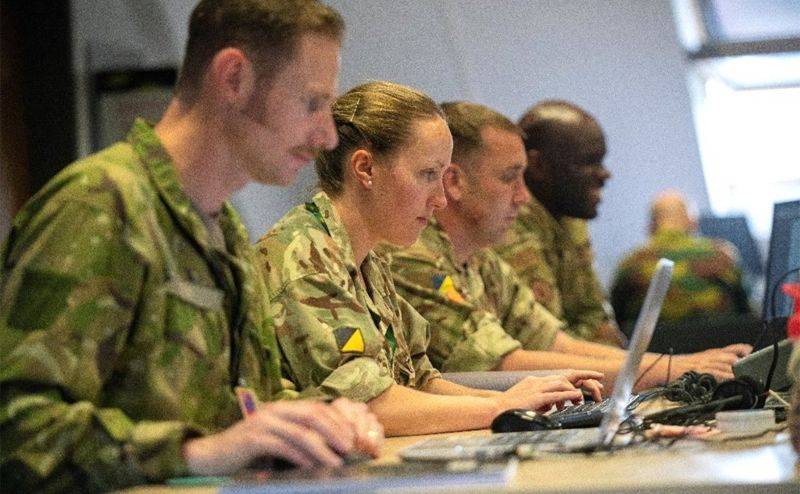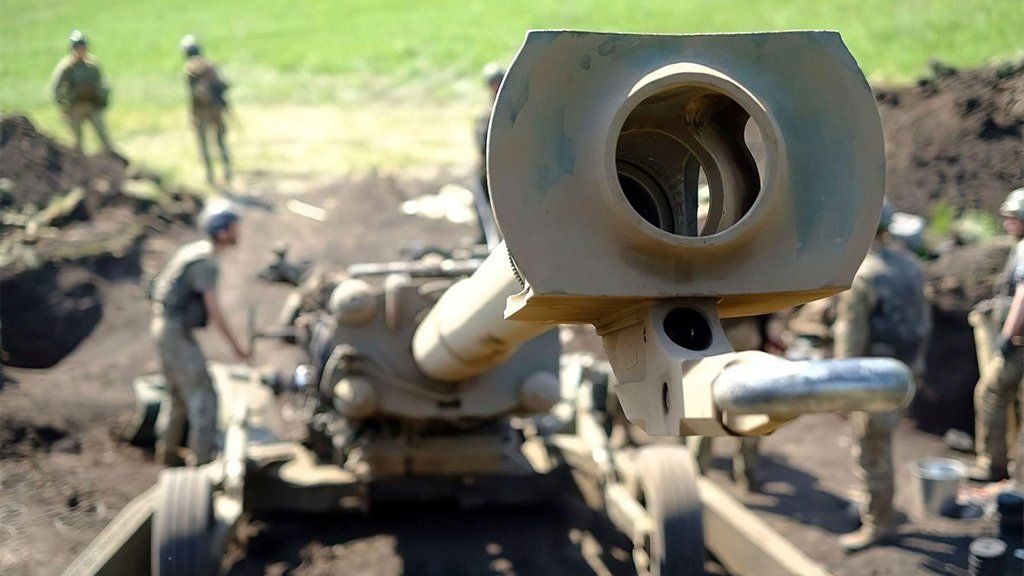In the attic of an austere US military barracks in the German city of Stuttgart, dozens of military personnel from 26 nations are working round the clock to deliver weapons to Ukraine.
From this room, Western allies have already helped deliver nearly $8bn (£6.6bn) worth of weapons and ammunition to Ukraine's armed forces. That's 66,000 tonnes - the equivalent of 5,000 London double-decker buses, as one British officer worked out.
Most of what happens at Patch Barracks is highly classified. We are asked to leave all electronic devices behind and we are not allowed to film or talk to the Ukrainians who are part of the International Donors Coordination Cell (IDCC).
Military personnel from dozens of countries bash the phones and pore over computer screens. They include a small team from Ukraine, led by a three-star general. At the start of each day he sets out what his country needs. The situation in the Donbas appears increasingly bleak, but here in Stuttgart there's more a sense of urgency than panic.
Around one set of desks a team is tasked with locating supplies. Sometimes they'll find a nation willing to provide weapons, but will then have to track another country for the right ammunition or the means to transport them. They've now developed a database where the Ukrainians can list their priorities. Donor nations can access that information and decide what they're willing and able to supply.
Brig Chris King, the senior British officer, says that military aid is being delivered by air, road, rail and sea and to multiple locations "in order to ensure we don't have any single points of failure".
He says that Russia has tried to step up its attacks on supply lines but there's been no "significant" interruption to their delivery.
I ask if any supplies have been hit.
"Yes, I presume so," he replies.
The task of moving the weapons and ammunition across the border is left to the Ukrainians themselves, says Rear Adm Duke Heinz, the senior US commander at the IDCC.
"In Poland and the other countries, the Ukrainians come and get it - so they're the ones who determine how it gets across the border." Once the weapons cross the border, they can arrive at the front line "within 48 hours".In the attic of an austere US military barracks in the German city of Stuttgart, dozens of military personnel from 26 nations are working round the clock to deliver weapons to Ukraine.
From this room, Western allies have already helped deliver nearly $8bn (£6.6bn) worth of weapons and ammunition to Ukraine's armed forces. That's 66,000 tonnes - the equivalent of 5,000 London double-decker buses, as one British officer worked out.
Most of what happens at Patch Barracks is highly classified. We are asked to leave all electronic devices behind and we are not allowed to film or talk to the Ukrainians who are part of the International Donors Coordination Cell (IDCC).





No comments yet
Be the first to share your thoughts!